Options and Challenges in Providing Universal Access to the Internet (Part 1)
by Helen Anne Hicks (North Park University), Rajesh Nighot (IEEE), Nagender Aneja (Universiti Brunei Darussalam), Mohammed Aledhari (Western Michigan University), Ali Kashif Bashir (Senior Member, IEEE) and Jared Bielby (IEEE)
IEEE Internet Initiative eNewsletter, November 2016
Although the Internet was considered a luxury commodity a mere decade ago, it can now be considered one of the most essential of public utilities along with water, electricity and natural gas. Electricity was considered a luxury commodity in the early 19th century and quickly became a public utility in the 20th century. The Internet has done the same recently. Electricity has mechanized the world and helped reduce poverty, while Internet access can facilitate easier management of other public utilities and promote clean governance on a wider scale. For those with access, and those without, the Internet has become a necessary part of daily life.
The World Economic Forum, 2016 posited that access to the Internet is an invaluable tool, yet four billion people worldwide remain unconnected. While citizens of developed countries have a tendency to take inexpensive and reliable Internet access for granted, most of the world struggles to secure the same privilege. In both developing and developed countries, there are those who live without access to the Internet.
Research has documented that the Internet has a positive impact “in areas such as health, education, basic financial services and agriculture”, World Economic Forum, 2016. The various benefits to having universal and reliable access to the knowledge that the Internet provides have also been well documented. As the Internet becomes a necessary part of daily life, those responsible for the technological functioning of the Internet as well as for the ever increasing policy surrounding Internet governance, have stepped up to address the gap in universal access, including industry standards leader IEEE.
IEEE Board of Directors recently approved IEEE’s first position statement on universal access and endorsed its goal to expand access to the billions of people in both developed and developing countries around the world that do not currently have Internet access. Within the framework of the IEEE Experts in Technology and Policy (ETAP) working group, and under the umbrella of IEEE’s Collabratec Internet Technology Policy Community coordinated by IEEE Consultant Jared Bielby, more than a dozen experts worldwide have mobilized under the leadership of writer/researcher and IEEE Senior Member Prasad Mantri to identify and address the main options and challenges for universal access. The group has identified six necessary challenges for addressing global equitable Internet access, the first three of which are presented below.
1. Internet Infrastructure
Internet infrastructure (wire & wireless) is the main challenge to providing public access to the Internet. Determining an infrastructure to connect the unconnected will provide a foundation towards establishing a globally connected community. Issues include network design choices, technology choices, and integration issues between existing and future communication infrastructures.
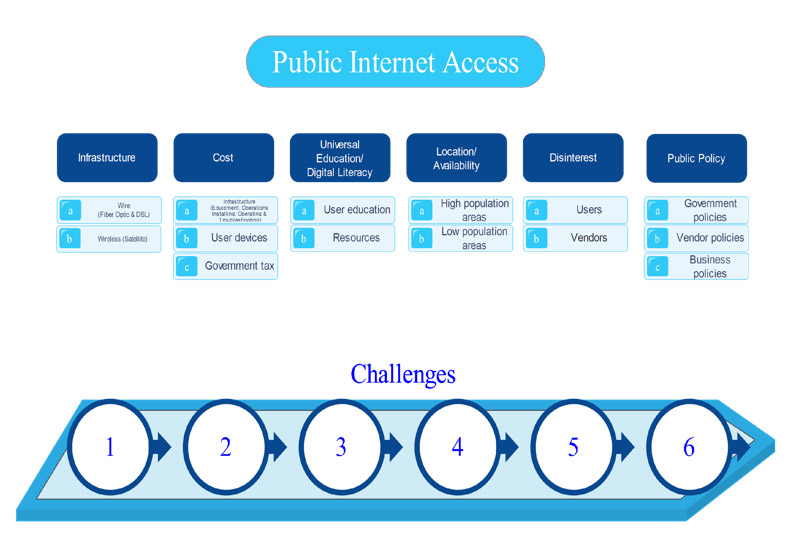
Figure SEQ Figure \* ARABIC 1: Public Internet Access Challenges
2. Cost to Provide. Can either broadband or wireless access be used to allow access and/or maximize the existing infrastructure? Or is the cost too prohibitive given the current local economic conditions and infrastructure of each area? Can suppliers of the Internet be utilized to spread the penetration rate within countries where few have access? Would a healthy competition among them be a possible solution? What other technologies and innovations exist that can provide an affordable solution? The capital costs of network infrastructure, including installing, operating, and troubleshooting, directly affects potential customers and their options. Solutions should include addressing business issues relating to companies unable to recover their investments that are potentially required for implementing services, enabling entrepreneurial ventures and new Public Private Partnership (PPP) models that will encourage the creation of infrastructure, thus making the cost recovery of such services viable.
3. Universal Education/Digital Literacy. Does the majority of the local population have the expertise and knowledge needed to effectively and/or efficiently use their access to the Internet? If not, what are the best means, modes, and channels that can be used to spread digital literacy and increase universal education? Improving technological skills for all may prove a formidable challenge. How do we ensure that everyone who has the access to the Internet also has the knowledge and expertise to use laptops, mobile phones, and other information communication technologies?
A universal digital literacy effort may include providing Internet content in regional languages and dialects as well as effective machine translation of webpages. One of the main challenges of providing universal Internet access in terms of digital literacy is multilingualism, applicable to all countries but in particular to developing regions in Asia, Africa and the Middle East. Though the Internet was originally built using English linguistic parameters, the English language is currently used by only 30% of total global-wide Internet users. There are 10 languages used by 82% of Internet users aside from English. These include German, Spanish, Chinese, Russian, Arabic, Japanese, Portuguese, French and Malaysian. At least 80 percent of all content on the Internet is written in one of these ten languages. None of the Indian Languages are in the top ten despite the large number of speakers. In some countries, hardware doesn’t support local language. With a total of 6000 languages in use worldwide today, only 130 are available on the Internet. In some regions, such as Africa, where several variant dialects exist, next to none are available on the Internet.
There are a number of options for increasing global Internet literacy, as demonstrated in India, Africa, and China, where an active engagement of NGOs, NPOs, government authorities, schools and education institutes lead the way. In the case of India, NPOs have several dedicated programs for increasing Internet literacy among schools, rural women’s groups, employed individuals, and retired groups. There is a big divide between rural users and urban users in India that complicates the application of such programs and only 36.6% of the total Internet users in India are from rural areas. Likewise, according to Livemint, only 28.6% of total Internet users in China live in rural areas. Only 28.1% of Africans have Internet access with the majority of users located in South Africa, Nigeria, Kenya, Morocco and Egypt. In Africa there are a number of initiatives taken by NGOs, NPOs, government, educational institutes, and business organizations to increase digital literacy. SAP SE, a German software firm, has recently introduced an initiative to educate 150,000 youth across 30 African countries towards increasing their digital literacy skills.
Infrastructure, cost, and education/literacy issues are critical components for addressing the concept of Internet access for all. Three additional options and challenges include location/availability, disinterest, and public policy, and will be covered in part two of this article.
References:
[1] Is the Internet an Effective Mechanism for Reducing Corruption Experience? Evidence from a Cross-Section of Countries,(2014) Applied Economics Letters 21 (10), 687-691.
[2] Seema Singh, "India's Homegrown System for "Fixed Wireless" Has Legs", IEEE Spectrum, July 2003
[3] Livingstone, Sonia, Magdalena Bober, and Ellen Helsper. "Internet literacy among children and young people: Findings from the UK Children Go Online Project." (2005).
 Helen Anne Hicks
Helen Anne Hicks
Born and raised in Chicago, Helen earned a B.S. and an M.B.A. from the University of Illinois at Chicago. She is currently an adjunct professor at North Park University in Chicago. Helen has traveled to Nicaragua twice with an American NGO, where she helped install off-grid solar electricity in two rural villages that were too far from the traditional infrastructure. Her ongoing doctoral dissertation from Walden University (expected 2017) deals with the topic of bringing the internet to rural areas in Central America using off-grid renewable energy sources to first bring electricity to these rural villages.
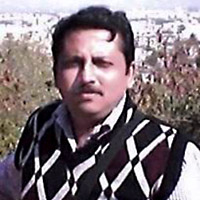 Rajesh Nighot
Rajesh Nighot
Rajesh has earned a B.E degree in Electronics and Power Engineering from the National Institute of Technology-Nagpur, India and a M.S degree from the University of Saskatchewan, Canada. In the last 19 years he has provided engineering services to private and Government organizations in Australia, Canada, New Zealand, Philippines, India and USA. He is currently providing specialized engineering services for power generation project at the world’s largest petrochemical complex in Gujarat, India. From 2009 to 2010, he undertook research in tharea of public policy for electricity sector at the Auckland University of Technology.
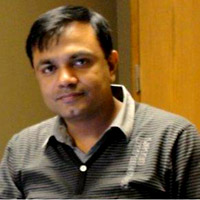 Nagender Aneja
Nagender Aneja
Nagender earned M.Engg. in Computer Tech. and Applications from Delhi College of Engineering and is a PhD Scholar at YMCA University of Science and Technology, India. He is currently Senior Manager at Innovation and Enterprise Office, Universiti Brunei Darussalam. Nagender's android app based on peer-to-peer networking, OffAT-Chat in Airplane mode, recently won Brunei ICT Awards 2016 to represent Brunei in Asia Pacific ICT Alliance Awards, Taiwan. His ongoing doctoral work is in area of ad-hoc social networking without using any centralized infrastructure.
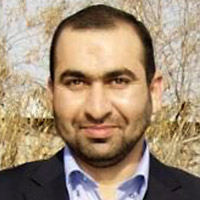 Mohammed Aledhari
Mohammed Aledhari
Mohammed Aledhari received the B.S. degree in computer science from the University of Anbar, Anbar, Iraq, in 2003 and the M.S. degree in computer science from the University of Basra, Basra, Iraq, in 2010. He is currently working toward the Ph.D. degree at the Department of Computer Science, Western Michigan University, Kalamazoo, MI, USA. He is currently a Doctoral Associate at the Center for High Performance Computing and Big Data, Western Michigan University. He also served as a Software Engineer Team Lead at the Iraqi Drilling Company (IDC) from January 2005 - August 2011. His current research interests include Internet of Things, Big Data, Machine Learning, Networks, Cloud Computing, Microcontrollers and Robots.
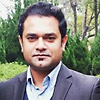 Dr. Ali Kashif Bashir
Dr. Ali Kashif Bashir
Dr. Ali Kashif Bashir received his Ph.D. in Computer Science and Engineering from Korea University, South Korea. He is currently working for Graduate School of Information Science and Technology, Osaka University. Dr. Ali is a senior member of IEEE and an active member of ACM and IEICE. He has given several invited and keynote talks and is a reviewer of top journals and conferences. His research interests include: cloud computing (NFV/SDN), network virtualization, IoT, network security, wireless networks, etc. He is also serving IEEE Internet Technology Policy eNewsletter as editor in chief.
 Jared Bielby
Jared Bielby
Jared Bielby received a double master's degree at the University of Alberta, Canada in information science and digital humanities with a thesis route in the field of information ethics. He works as an independent consultant in information ethics and internet governance. He currently serves as co-chair for the International Center for Information Ethics and editor for the International Review of Information Ethics. He is moderator and content writer for the Institute of Electrical and Electronics Engineers' (IEEE) Collabratec Internet Technology Policy Forum (IEEE-ITP) and is founder and editor-in-chief of The Freelance Netizen.
Editor:
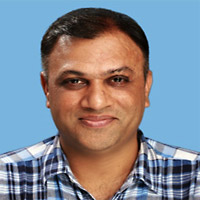 Dr. Tahir Hameed
Dr. Tahir Hameed
Dr. Tahir Hameed has been associated with SolBridge International School of Business in South Korea since 2012. He teaches courses related to information systems and technology management at the masters and bachelors levels. Prior to joining SolBridge, Dr. Hameed obtained his Ph.D. in Information Technology Management from the Korea Advanced Institute of Science and Technology (KAIST), and obtained his Masters in Computer Science from Lahore University of Management Sciences (LUMS). His research interests include the areas of information technology standards, innovation, IT policy, information systems adoption, and knowledge management. He has published extensively in prestigious journals such as Telecommunications Policy, Technological Forecasting and Social Change, World Development, and Journal of Knowledge Management. He has presented several papers at leading conferences including IEEE conference on Industrial Engineering and Engineering Management and Australasian Conference on Information Systems. Dr. Hameed’s current research focus is in the areas of health informatics, knowledge management systems, educational information technology, and technology commercialization. He can be reached at tahir@solbridge.ac.kr.
Article Contributions Welcomed
If you wish to have an internet policy related article considered for publication, please contact the Managing Editor of Technology Policy and Ethics IEEE Future Directions Newsletter.
Past Issues
IEEE Internet Policy Newsletter Editorial Board
Dr. Ali Kashif Bashir, Interim Editor-in- Chief
Dr. Syed Hassan Ahmed
Dr. Mudassar Ahmad
Dr. Onur Alparslan
Dr. Muhammad Bilal
Dr. Syed Ahmad Chan Bukhari
Dr. Ankur Chattopadhyay
Dr. Junaid Chaudhry
Dr. Waleed Ejaz
Dr. Yasir Faheem
Dr. Prasun Ghosal
Dr. Tahir Hameed
Dr. Y. Sinan Hanay
Dr. Shagufta Henna
Dr. Fatima Hussain
Dr. Rasheed Hussain
Dr. Saman Iftikhar
Dr. Stephan Jones
Dr. Mohammad Saud Khan
Olga Kiconco
Dr. Jay Ramesh Merja
Dr. Mubashir Husain Rehmani
Dr. Hafiz Maher Ali Zeeshan
About: This newsletter features technical, policy, social, governmental, but not political commentary related to the internet. Its contents reflect the viewpoints of the authors and do not necessarily reflect the positions and views of IEEE. It is published by the IEEE Internet Initiative to enhance knowledge and promote discussion of the issues addressed.


